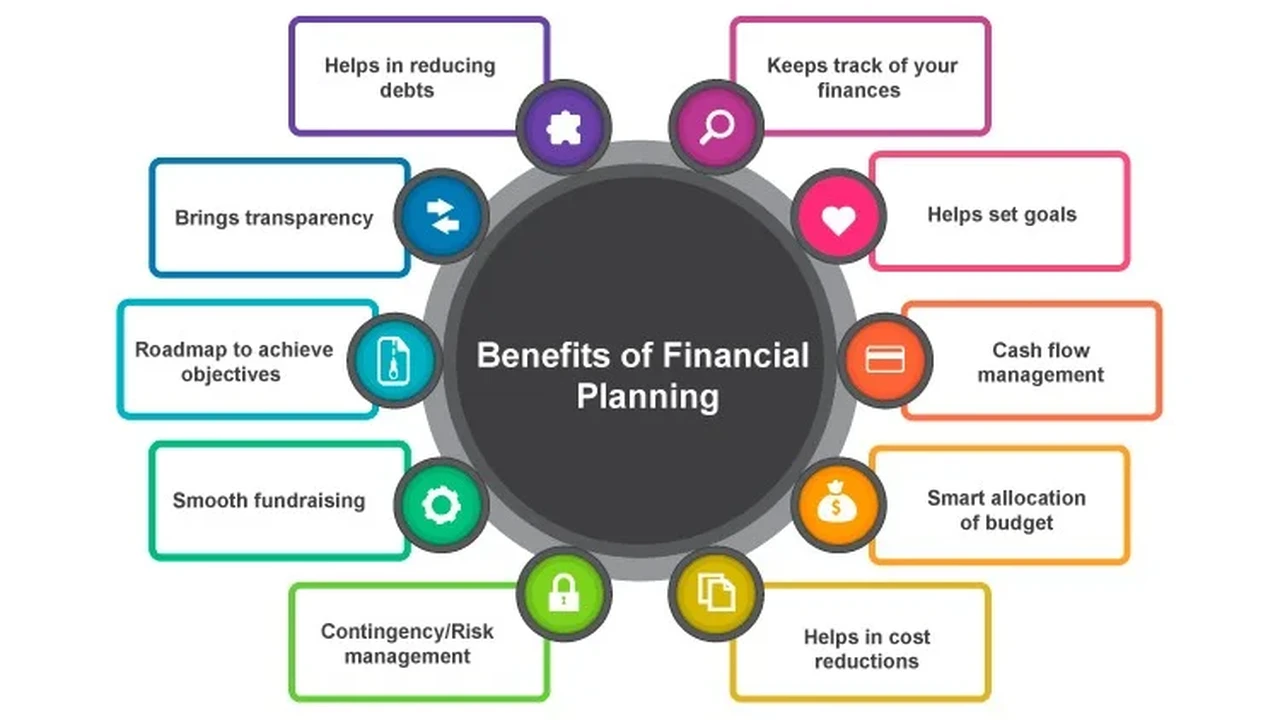How to Negotiate with Creditors for Debt Relief
Practical advice on how to effectively negotiate with creditors to achieve debt relief and more favorable terms.

How to Negotiate with Creditors for Debt Relief
Facing overwhelming debt can feel like being trapped in a financial maze with no exit. The constant calls, the mounting interest, and the feeling of helplessness can be incredibly stressful. But here's a secret: you're not alone, and there are ways out. One of the most powerful tools in your debt relief arsenal is negotiation. Yes, you can actually talk to your creditors and work out more favorable terms. It might sound intimidating, but with the right approach and a bit of preparation, you can significantly reduce your debt burden, lower your interest rates, or even settle for less than you owe. This comprehensive guide will walk you through everything you need to know about negotiating with creditors, from understanding your rights to specific strategies and even product recommendations that can help you along the way.
Understanding Your Debt Negotiation Landscape
Before you pick up the phone, it's crucial to understand the lay of the land. What kind of debt do you have? Who are your creditors? What are your financial circumstances? Knowing these details will empower you in your negotiations.
Types of Debt and Creditor Motivations
Not all debt is created equal, and understanding the type of debt you have will influence your negotiation strategy. Common types include credit card debt, personal loans, medical bills, and even student loans (though these are often harder to negotiate). Creditors, whether they are banks, credit card companies, or collection agencies, ultimately want to recover as much of the money owed as possible. They'd rather get some money than no money at all. This is your leverage. They know that if you declare bankruptcy, they might get nothing. This fear of total loss often makes them more willing to negotiate.
When to Consider Debt Negotiation Strategies
Debt negotiation isn't for everyone. It's typically considered when you're struggling to make minimum payments, have fallen behind, or are facing significant financial hardship. If you're consistently making payments on time, you might not have as much leverage. However, if you're experiencing a job loss, a medical emergency, or other unforeseen circumstances, that's a prime time to reach out. Don't wait until you're completely underwater. Proactive communication can often lead to better outcomes.
Preparing for Your Creditor Negotiation
Preparation is key to successful negotiation. Think of it like preparing for a job interview or a big presentation. The more information you have and the clearer your objectives, the better your chances of success.
Gathering Essential Financial Documents for Debt Discussions
Before you call, gather all relevant financial documents. This includes statements from your creditors, recent pay stubs, bank statements, and a list of your monthly expenses. This information will help you present a clear picture of your financial situation and demonstrate your inability to pay the full amount. It also helps you determine what you can realistically afford to offer.
Assessing Your Financial Situation and Affordability for Debt Relief
Create a detailed budget. Know exactly how much money you have coming in and going out. This will help you determine a realistic offer for your creditors. Don't offer more than you can truly afford, as failing to meet a new agreement can put you in an even worse position. Be honest with yourself about your financial limits.
Understanding Your Rights as a Debtor During Negotiations
Familiarize yourself with the Fair Debt Collection Practices Act (FDCPA). This federal law protects you from abusive, unfair, or deceptive debt collection practices. Knowing your rights will prevent you from being intimidated or misled by aggressive collectors. For example, they cannot harass you, make false statements, or threaten you with actions they cannot legally take.
Effective Strategies for Negotiating with Creditors
Now that you're prepared, let's dive into the actual negotiation strategies. Remember, politeness and persistence go a long way.
Initiating Contact and Setting the Tone for Debt Resolution
Start with a polite but firm tone. Explain your situation clearly and concisely. Avoid emotional outbursts. State that you are looking for a solution to your debt and are willing to work with them. It's often best to start with a phone call, but follow up with a written letter to document everything.
Proposing Realistic Payment Plans and Settlements for Debtors
There are several types of agreements you can aim for:
- Lower Interest Rates: If you're struggling with high-interest credit card debt, ask if they can lower your interest rate. This can significantly reduce your monthly payments and the total amount you pay over time.
- Reduced Monthly Payments: If your current payments are too high, propose a lower, more manageable monthly payment. Be prepared to explain why you need this reduction and how long you anticipate needing it.
- Debt Settlement (Lump Sum or Installment): This is where you offer to pay a portion of the total debt, and the creditor agrees to forgive the rest. This is often an option if you have a lump sum of money (e.g., from a tax refund, bonus, or selling an asset) or if your account is significantly delinquent. Creditors might settle for 40-70% of the original debt, but sometimes even lower.
- Temporary Hardship Programs: Some creditors offer temporary programs like forbearance or deferment if you're experiencing a short-term financial setback. This pauses or reduces payments for a set period.
When proposing a settlement, start low. They will likely counter-offer. Be prepared to negotiate back and forth. Always get any agreement in writing before you make any payments.
What to Say and What Not to Say During Debt Negotiations
Do:
- Be honest about your financial situation.
- Be polite and respectful.
- Be firm and confident in your offer.
- Have a specific offer in mind.
- Ask for everything in writing.
- Keep detailed records of all communications.
Don't:
- Make promises you can't keep.
- Get emotional or angry.
- Admit that you have more money than you do.
- Agree to anything verbally without written confirmation.
- Give out sensitive information like your bank account number over the phone unless you initiated the call and are certain of the recipient's identity.
Documenting All Agreements and Communications with Creditors
This cannot be stressed enough: get everything in writing. If a creditor agrees to a lower interest rate, a reduced payment, or a settlement, insist on a written agreement before you make any payments. This protects you in case of a dispute later on. Keep a log of every call, including the date, time, who you spoke to, and what was discussed.
When to Seek Professional Help for Debt Negotiation
Sometimes, negotiating on your own can be overwhelming or unsuccessful. That's when professional help can be invaluable.
Understanding Debt Management Plans and Credit Counseling
Non-profit credit counseling agencies can help you create a debt management plan (DMP). In a DMP, the agency negotiates with your creditors on your behalf to lower interest rates and monthly payments. You then make one consolidated payment to the agency, and they distribute it to your creditors. This can be a good option if you have multiple debts and want a structured repayment plan. They also provide financial education.
Exploring Debt Settlement Companies and Their Services
Debt settlement companies negotiate with your creditors to settle your debts for less than the full amount. They typically advise you to stop paying your creditors directly and instead save money in a special account. Once enough money has accumulated, they offer a lump sum settlement to your creditors. While this can result in significant debt reduction, it comes with risks: your credit score will take a hit, and you might face lawsuits from creditors before a settlement is reached. Fees can also be substantial.
Considering Bankruptcy as a Last Resort for Debt Relief
Bankruptcy should always be a last resort. It has severe long-term consequences for your credit and financial future. However, in some extreme cases, it might be the most viable option for a fresh start. Consult with a bankruptcy attorney to understand if this is the right path for you.
Tools and Products to Aid Your Debt Negotiation Journey
While negotiation is primarily about communication, certain financial tools and products can significantly assist you in managing and ultimately reducing your debt.
Budgeting Apps for Financial Clarity and Negotiation Leverage
Knowing your exact financial situation is paramount. Budgeting apps can provide the clarity you need to make informed offers to creditors. They help you track income, expenses, and identify areas where you can cut back to free up funds for debt repayment or settlement offers.
- Mint (Free): A popular choice for comprehensive budgeting. It links to your bank accounts, credit cards, and investments, providing a holistic view of your finances. You can categorize transactions, set budgets, and track your net worth. Its visual reports are great for understanding spending habits.
- You Need A Budget (YNAB) ($14.99/month or $99/year): YNAB is based on the 'zero-based budgeting' philosophy, meaning every dollar has a job. It's excellent for those who want to be very hands-on with their money and prioritize debt repayment. It has a steeper learning curve but is highly effective for disciplined budgeting.
- Personal Capital (Free for basic features, paid for advisory services): While more focused on investments, Personal Capital also offers robust budgeting and net worth tracking features. It's great for seeing your entire financial picture in one place, which can help you identify assets that could be used for a debt settlement.
Debt Management Software for Tracking and Planning
Beyond basic budgeting, dedicated debt management software can help you visualize your debt, plan repayment strategies (like debt snowball or avalanche), and track your progress. This can be incredibly motivating and help you stay on track with any negotiated payment plans.
- Tally (Free for basic features, paid for Tally+): Tally is an automated debt manager that helps you pay off credit card debt faster. It analyzes your credit cards and helps you pay down the ones with the highest interest rates first. It can also offer a lower-interest line of credit to consolidate your high-interest debt, which can be a form of negotiation in itself by reducing your overall interest burden.
- Undebt.it (Free with optional paid features): This web-based tool allows you to input all your debts and then choose a repayment strategy (snowball, avalanche, highest interest, etc.). It calculates projected payoff dates and interest saved, providing a clear roadmap for your debt-free journey. It's highly customizable and great for visual planners.
- Debt Payoff Planner (Mobile App, Free with in-app purchases): Available on iOS and Android, this app helps you organize your debts, choose a payoff method, and track your progress. It's simple, intuitive, and great for on-the-go tracking of your debt negotiation and repayment efforts.
Secure Communication Platforms for Sensitive Financial Discussions
While most initial negotiations happen over the phone, having a secure way to send and receive documents is crucial. Avoid sending sensitive financial information via unsecured email. Consider using secure portals or encrypted communication methods if provided by your creditor or debt relief service.
- ProtonMail (Free for basic, paid for advanced features): Offers end-to-end encrypted email, making it a more secure option for sending sensitive documents than standard email services. While creditors might not use it, you can use it to send documents to your debt relief professional.
- DocuSign (Various plans, free trial available): While primarily for e-signatures, DocuSign provides a secure platform for exchanging and signing documents. If a creditor sends you a settlement agreement, it might come through a secure portal like this.
- Your Creditor's Secure Online Portal: Many banks and credit card companies offer secure online portals where you can send messages, upload documents, and view statements. Always prioritize using these official, secure channels for communication and document exchange.
Credit Monitoring Services for Post-Negotiation Tracking
After negotiating, especially if you settle a debt, your credit score will likely take a hit. Credit monitoring services can help you track your score, identify any errors, and see the impact of your repayment efforts. This is crucial for rebuilding your financial health.
- Credit Karma (Free): Provides free credit scores (VantageScore 3.0 from TransUnion and Equifax), credit reports, and monitoring. It also offers insights into factors affecting your score and recommendations for financial products. It's an excellent tool for general credit health monitoring.
- Experian, TransUnion, Equifax (Free annual report, paid for monitoring): You are entitled to a free credit report from each of the three major bureaus annually via AnnualCreditReport.com. For more frequent monitoring and alerts, each bureau offers paid services. Experian's free tier also offers a FICO score and basic monitoring.
- MyFICO (Various plans, starting around $19.95/month): If you want to track your actual FICO scores (the scores most lenders use), MyFICO is the go-to. It provides scores from all three bureaus and helps you understand how different actions impact your score. This is particularly useful if you're planning to apply for new credit in the future.
Remember, the goal of negotiation is not just to reduce your debt but to create a sustainable path forward. By combining effective communication strategies with the right financial tools, you can regain control of your finances and work towards a debt-free future. It takes patience, persistence, and a clear understanding of your situation, but the payoff is well worth the effort.
:max_bytes(150000):strip_icc()/277019-baked-pork-chops-with-cream-of-mushroom-soup-DDMFS-beauty-4x3-BG-7505-5762b731cf30447d9cbbbbbf387beafa.jpg)






